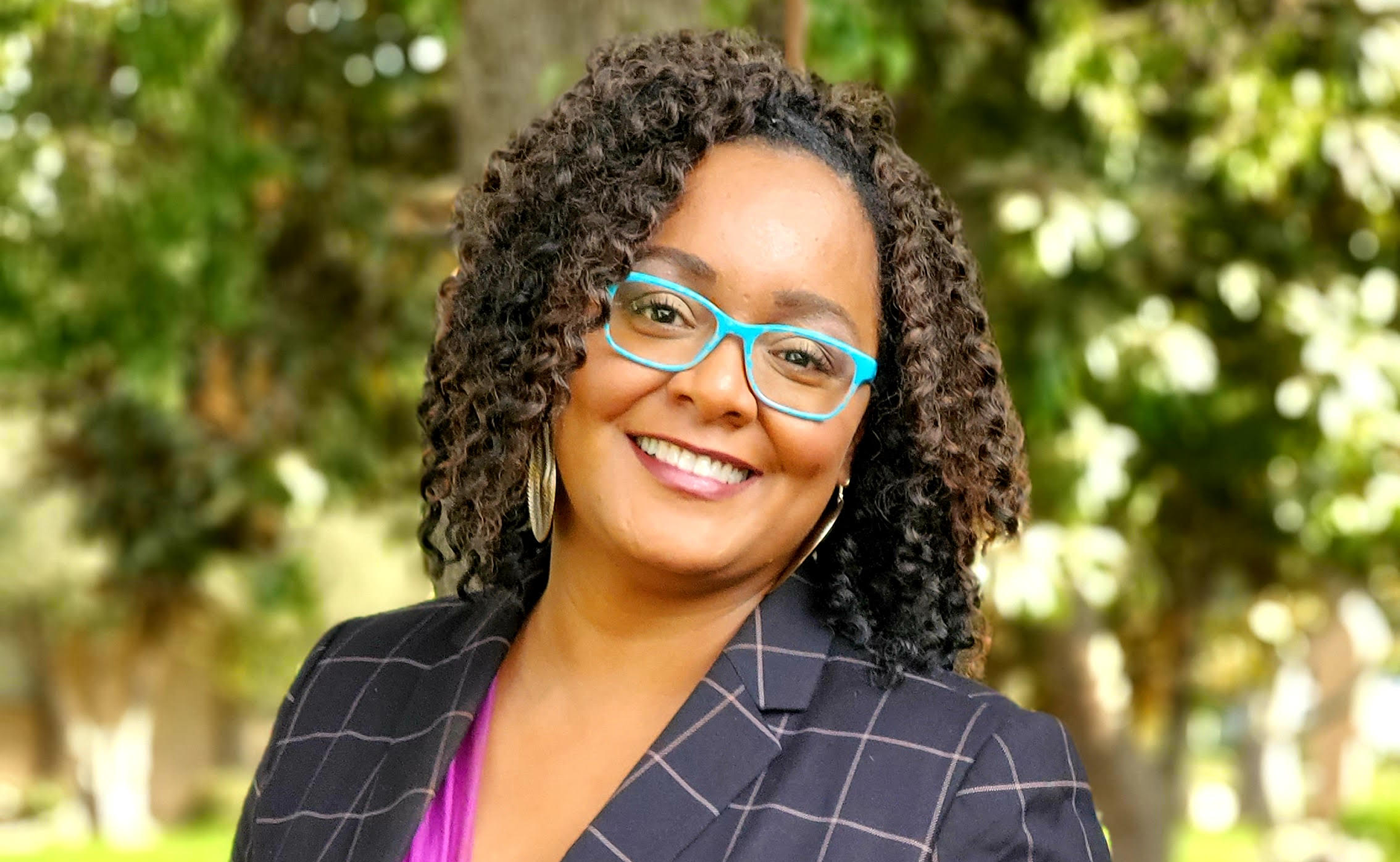Dr. Cherise McBride started thinking about equity-minded education early in her career working at continuation high schools, which are supposed to be an alternative diploma resource for students who are behind on their earned high school credits.
McBride was troubled that, while the comprehensive high school that students were sent from was only 30 percent Black, the continuation school she taught in was 80 percent Black. “These credit-deficient students were being pushed out of the comprehensive school rather than supported,” she says. “I saw those inequities front and center. These students were at risk of dropping out and I wondered why that was. I thought about those discrepancies a lot.”
She connected those discrepancies to her own experience as a student at the University of California (UC), Berkeley. African Americans made up 4 percent of the student population, and she feels she understands the impact when students don’t have the support or role models their peers have.
After 15 years as an educator in high schools, adult education, and community colleges, McBride returned to UC Berkeley as a digital literacy researcher and instructor specializing in equity-minded education and digital learning. She teaches in the Teacher Education Program and is completing a doctorate focused on humanizing digital pedagogy.
In the Teacher Education Program, McBride works with educators one on one. Now she’s looking forward to sharing her experience as part of the Every Learner Everywhere Expert Network, powered by ISTE. She is one of a group of seven consultants providing flexible on-demand coaching to higher education faculty and leaders who are working to advance equity and inclusion in blended and online modalities. Her areas of expertise include digital pedagogy; the intersection of literacy, digital technologies, and teacher development; and designing learning for equity and social justice.
As a consultant on equity in digital learning, McBride says she typically works with educators on everyday challenges: “That’s the model. They come with problems in practice, and they’re trying to develop learning designs that they can take back to their classrooms.”
Remote learning and equity gaps
One issue McBride looks forward to consulting with college faculty on is ensuring their remote courses close equity gaps instead of exacerbating them. She says one way educators get online courses off on the wrong foot is by uncritically applying face-to-face teaching practices.
For example, she points to reading and writing skills that, if supported effectively, can be the foundation of equity-minded education. “When we think about equitable learning environments, what might it look like to have students engage in the writing process in collaborative ways on a digital platform?” McBride asks. “What might it take to teach students how to navigate reading assignments? To create an equitable environment, we have to teach and scaffold those practices.”
She also says educators must also avoid the assumption that all students are digital natives or that any online experience is good preparation for online education. Absorbing a lot of information on social media is not necessarily a preparation for the formal inquiry and knowledge creation needed in a college class. Instructors need to prepare for how students will increase their digital literacy.
Nevertheless, McBride says social media can play an important role in bridging equity gaps in digital learning. It’s like a television news program that is also a platform for conversation, she says. Instructors who can effectively use that potential for engagement have more tools for helping all their students.
Humanizing digital pedagogy
McBride’s dissertation at UC Berkeley is about humanizing digital pedagogy by honoring the lived realities of non-dominant communities through socioculturally situated understanding of technology. Different groups have inequitable access to resources and social mobility, she explains, and students have varied relationships to technology resources.
As a result, technology as an autonomous tool is not going to transform learning in and of itself. McBride says, “We have to look at sociocultural factors such as economics, geography, access to resources, the cultural practices of these communities, and the history students may have with certain tools.”
That includes how activities are structured in a student’s family or in their everyday life. All these factors can affect what an individual can get out of a particular technology.
Coaching style
McBride characterizes her role in the Expert Network as a thought partner. “I like to share educators’ thinking,” she says. “I find out what their questions are, ask more questions to move their thinking along, and offer different perspectives that might speak to their students’ points of view. I get really excited when teachers and educators are able to make connections from what they have been doing to new ideas that reinvigorate their practice.”
McBride gladly shares her own experiences as a first-generation college student, although, she says, “I don’t claim to speak for all first-generation students. I’ve done a lot of work to continue learning and exploring issues of sociocultural elements of college today.”
The key quality of her coaching work, McBride says, is the belief that “we need to find joy in our work. When we speak, this is a serious issue, and we need to take it seriously. But part of my survival and resistance comes from finding joy and laughter and enjoying the things that I do.”
This article is part of a series profiling consultants in the Every Learner Everywhere Expert Network, powered by ISTE. The program offers flexible, on-demand coaching to advance equity and inclusion in blended and online modalities using all aspects of digital learning.
Learn more about the program and schedule a consultation with Cherise McBride.


